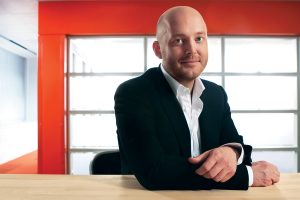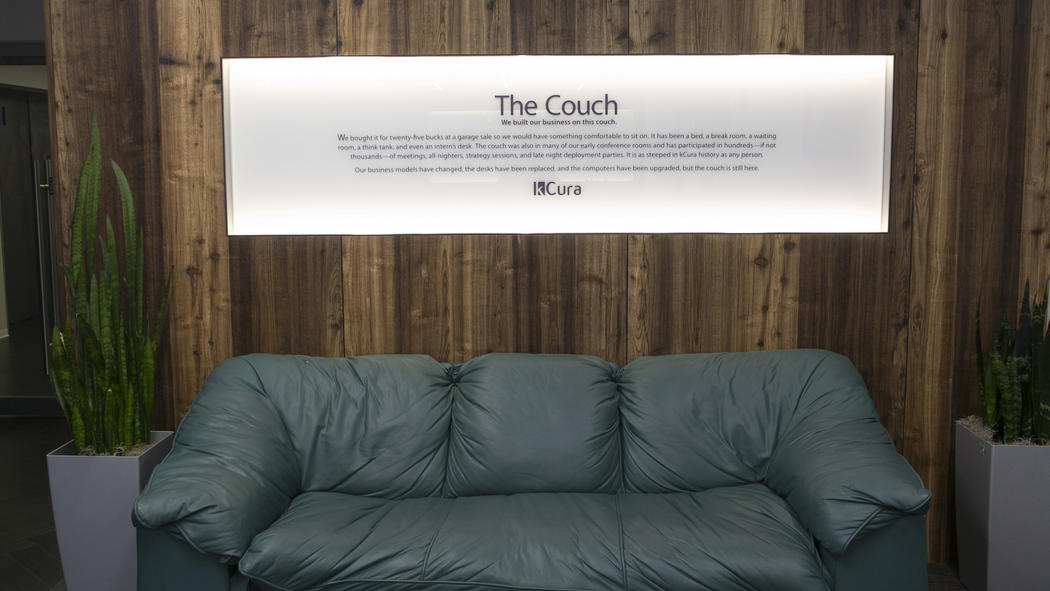A Conversation With kCura Founder Andrew Sieja
For such a successful company, not everyone knows the story behind kCura or its founder and CEO, Andrew Sieja.
 If you are a litigator at a Biglaw firm, then chances are you’ve used Relativity, the flagship product of Chicago based eDiscovery company kCura. I can say that with confidence because, in addition to being used by the U.S. Department of Justice, Relativity is being used in 195 of the Am Law 200 firms. The company has over 600 employees and three floors of a swanky downtown Chicago office building and every year they put on a massive conference called Relativity Fest (disclosure: kCura covered my travel costs and hotel at this year’s conference).
If you are a litigator at a Biglaw firm, then chances are you’ve used Relativity, the flagship product of Chicago based eDiscovery company kCura. I can say that with confidence because, in addition to being used by the U.S. Department of Justice, Relativity is being used in 195 of the Am Law 200 firms. The company has over 600 employees and three floors of a swanky downtown Chicago office building and every year they put on a massive conference called Relativity Fest (disclosure: kCura covered my travel costs and hotel at this year’s conference).
In early 2016, kCura bought Content Analyst and later in 2016 they began piloting RelativityOne, their new cloud based SaaS product. The decision to create RelativityOne was a big move for a company that, till now, made software that was deployed on-premises.
The cloud has been a point of entry into ediscovery for rapidly growing start-ups like Everlaw, CS Disco, Zapproved, Catalyst and Logikcull as well as bigger players like Thomson Reuters. And, while some of these companies do not see themselves in competition with kCura, others have taken direct aim. Last year, AJ Shankar, Everlaw’s CEO told Bloomberg Law, “They’re [kCura] definitely the largest out there and… their biggest advantage is the size of their network… and they’re hard to disrupt, but at the same time, that also makes it harder for them to move quickly. They’re committed to decisions they made years ago before the cloud was around.”

Legal AI: 3 Steps Law Firms Should Take Now
I met Sieja in a New York bar last February at the Legaltech Show — which, this year, has become a part of Legalweek. Sieja, a child of Polish immigrants, told me he first became interested in computers because his family moved around a lot, a familiar story for programmers. Andrew started kCura as a software consultancy in 2001 and in 2004 they built an ediscovery solution for Foley & Lardner. Only in 2007 did they began selling the software to other firms, and one of their first new customers at the time, DLA Piper, ended up generating enough business that they were able to focus on growing their eDiscovery software business, not just being a consultancy.
The amazing thing about this story is not just that kCura was able to become the industry leader in ediscovery, but that they bootstrapped almost all of their growth. In fact, the first time Sieja ever raised money was in 2015 when he raised a $125 million mega-round from ICONIQ Capital. To this day, the company takes pains to remind employees of the company’s bootstrapped roots, including a green, weathered couch that greets visitors in the company’s reception space; the couch has been with the company since it’s earliest days.

For the last couple of months, Andrew and I have been trading emails, and I asked him in advance to reply as if this would be a published conversation on ATL. What follows below is our unedited conversation.
Sponsored

Navigating Financial Success by Avoiding Common Pitfalls and Maximizing Firm Performance

Legal AI: 3 Steps Law Firms Should Take Now

Early Adopters Of Legal AI Gaining Competitive Edge In Marketplace

Early Adopters Of Legal AI Gaining Competitive Edge In Marketplace
Zach Abramowitz is a former Biglaw associate and currently CEO and co-founder of ReplyAll. You can follow Zach on Twitter (@zachabramowitz) or reach him by email at zach@replyall.me.
Sponsored

The Business Case For AI At Your Law Firm


Is The Future Of Law Distributed? Lessons From The Tech Adoption Curve








